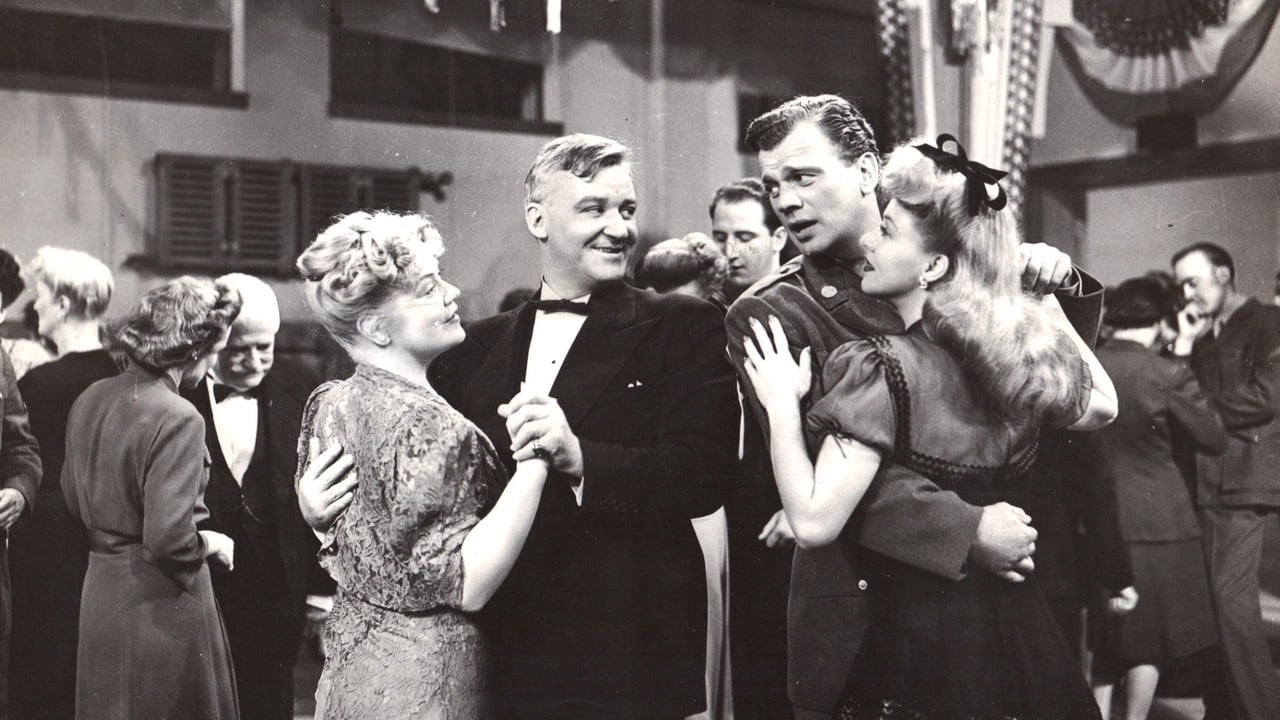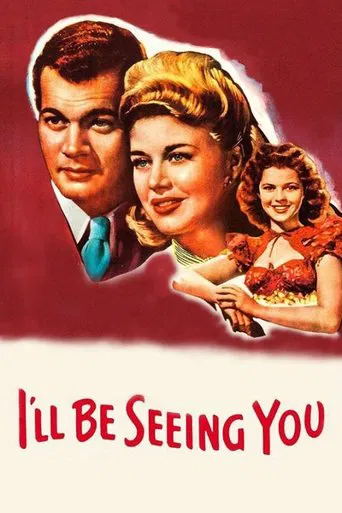

I think this is a new genre that they're all sort of working their way through it and haven't got all the kinks worked out yet but it's a genre that works for me.
... View MoreThis movie tries so hard to be funny, yet it falls flat every time. Just another example of recycled ideas repackaged with women in an attempt to appeal to a certain audience.
... View MoreThe storyline feels a little thin and moth-eaten in parts but this sequel is plenty of fun.
... View MoreGreat movie. Not sure what people expected but I found it highly entertaining.
... View MoreAn army sergeant with PTSD is released from rehab but has no place to go. On a train he meets Mary who's coming home on leave from state prison. He follows her to her town, but despite the mutual attraction, each has a past to hide.For those who like WWII domestic dramas, this is a good one. Of course, the Marshall homefront family is idealized in the manner of the day, including Mary's perky teenage sister (Temple), a perpetually sunny mother (Byington), and a gruffly affable Dad (Tully). I like the way Cotten (Sergeant Zach) and Rogers (Mary) meet up. The chemistry is strong but so is the hesitancy since each must maneuver around past troubles. Plus, Cotten never knows when the stress disorder will strike. His one bad episode, filmed from a subjective pov, helps keep events from getting too saccharine. It also lends a note of combat realism for what was then a widely misunderstood disorder. Then too, Mary's guilty of manslaughter, a serious crime regardless the circumstances, which in Mary's case are morally blameless (protecting herself from a predatory man).This is the usually spirited Rogers as she's seldom seen, subdued and hesitant. Still, she's excellent, such that it's small wonder Cotten's Zach is quickly smitten. Cotten too calibrates in low-key fashion, showing why he was so good at civilized disturbance (Shadow of a Doubt {1943}). Anyway, the chemistry between the two carries the 85-minutes, despite the soap opera elements; fortunately there's less milking of these elements than might be expected. All in all, the Selznick production remains polished entertainment from Hollywood's golden period, and a good glimpse of Hollywood's homefront, circa 1945.
... View MoreI'LL BE SEEING YOU (1944) will, for once and for all, change all perceptions of Hollywood during WWII. This very adult, mature and touching film deals with a soldier suffering from PTSD and a woman on furlough from prison for the holiday season. Devoid of all sentimentality, I'LL BE SEEING YOU deals frankly with the impact of war on soldiers while equally dealing with the hardships facing Americans during the war and in particular the plight of women, not as they wait for their men to return but as they are exploited both for labor and sex. What's perhaps best about I'LL BE SEEING YOU is that it stays clear of easy plot points and conflicts you may expect and instead paints a portrait of sadness and hardship but simultaneously the true and right way we humans should behave. Simply stellar!
... View MoreBeautiful story about a female convict (Ginger Rogers) and a shell-shocked solider (Joseph Cotton) who meet on a train and, over the course of the next few days, fall in love. It's a sweet, charming, romantic movie that's also very grown-up. These are both adult characters with adult problems and yet the film manages to handle this all very well without cynicism. It's a very rare thing, then and now, to have a romantic drama that is neither too sentimental or too pragmatic. It's a slow and soft film, perhaps too slow for many, but worth giving a try. This is an uncelebrated classic from director William Dieterle with two wonderful stars turning in terrific performances. There's also a teenage Shirley Temple, whose acting is less subtle than the others, but not so much it derails the movie. The seasonal backdrop usually means TCM shows it near Christmas so please check it out if you enjoy old movies and love stories.
... View MoreGinger Rogers gives a restrained performance as a quiet victimized young lady who is sent to prison after accidentally pushing her drunken boss out the window.While on furlough, she meets Joseph Cotten, who is battle scarred. The two strike up a memorable friendship, and Rogers tries to keep it from him where she is going back to.Tom Tully and Spring Byington are just wonderful as the aunt and uncle she goes to during her leave. She brings Cotten to their home and they accept him with dignity and kindness. They are a wholesome couple promoting wonderful family values. Shirley Temple is their teenager daughter, outspoken, but kind in this 1944 film.Of course, the picture proves that you can't hide things; they have a way of coming out. Nevertheless, the performances by Cotten and Ms. Rogers are warm and memorable.
... View More